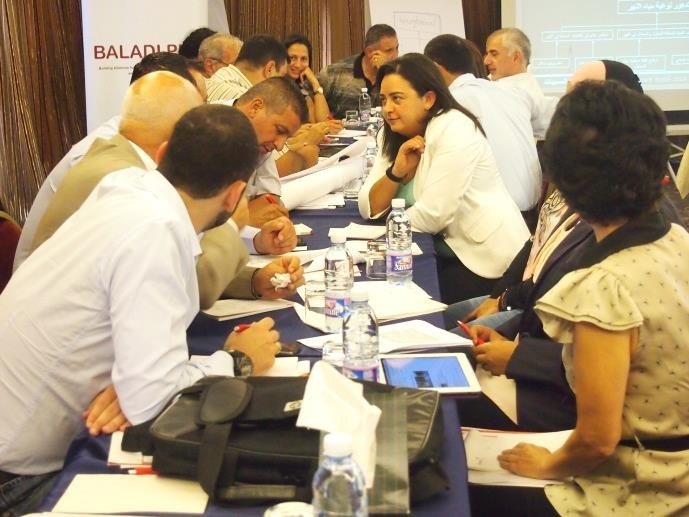
“Women can be anything they want in life. They can be mayors and presidents, teachers and mothers … after all, they are the engine of society,” says Rawiya Sankari, a mother and a staff member in the Fayhaa Union of Municipalities in north Lebanon.
Like other women who come to USAID workshops, Rawiya believes societal change comes by breaking stereotypes and challenging the routine.
USAID’s Building Alliances for Local Advancement, Development and Investment-Plus (BALADI Plus) program is helping female leaders in local government develop their skills and learn how to mitigate cultural and structural barriers impeding their roles since the program’s start in November 2012.
In 2013, USAID trained 29 women from municipal councils on project management, fundraising and proposal writing. The program conducted 16 municipal assessments, with the participation of 35 women from municipal staff.
As BALADI Plus wraps up in March 2014, an additional 40 women will be trained on municipal governance, procurement, local strategic development and other community-driven topics. The program encourages gender equality in leadership, which offers unique perspectives, opens the door for marginalized groups, promotes resilience, and helps overcome barriers to further development and promote peace.
“BALADI Plus gave us a toolkit to propose projects to the municipality and engage in valuable dialogues within the municipal council,” says Hoda Raad from Maqneh-Bekaa. She added that the workshops were also a platform for women to network with others involved in local government, share experiences from other regions, develop self-confidence, and garner trust from men and women alike.
Her counterpart, Josephine Zogheib from the municipality of Kfardebien in Mount Lebanon, added that BALADI Plus’s impact exceeds the knowledge gained throughout the workshop session.
“After the trainings and the coaching session, I felt I was ready and capable to put together a proposal and submit it to donors,” she said. “My project received funding, and my municipality now has bigger hopes and expectations because of me.”
Even though women’s participation in municipal affairs is limited in Lebanon due to a rigid patriarchal society and resistance to change by political elites, Sankari believes women have the potential to change this situation.
“A smart, educated and motivated woman immediately sets the ground for a new level of engagement,” she says. “First, she has to believe in herself so that her family and her colleagues believe in her too. Second, she needs to build her skills, and BALADI Plus is there to do that.”







Comment
Make a general inquiry or suggest an improvement.